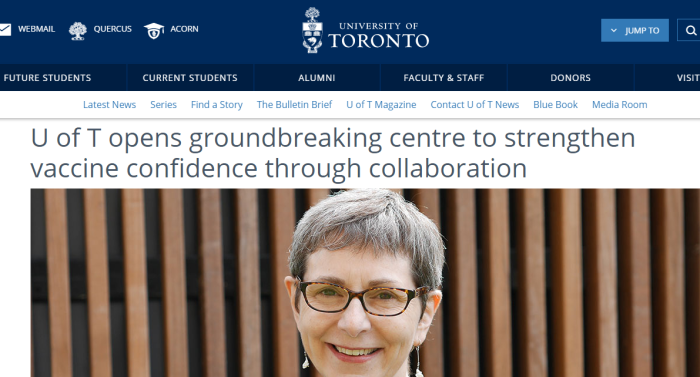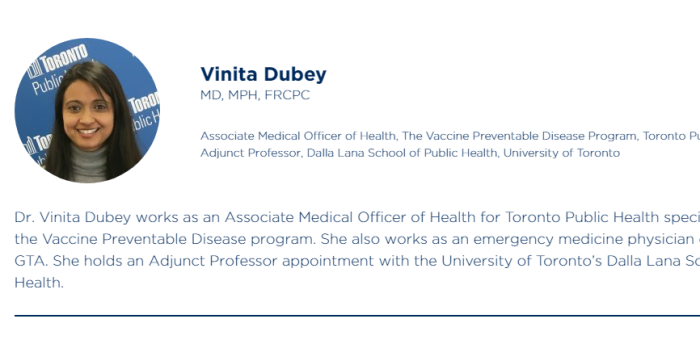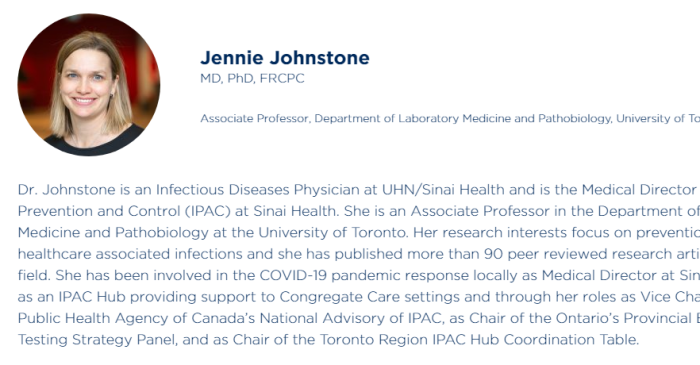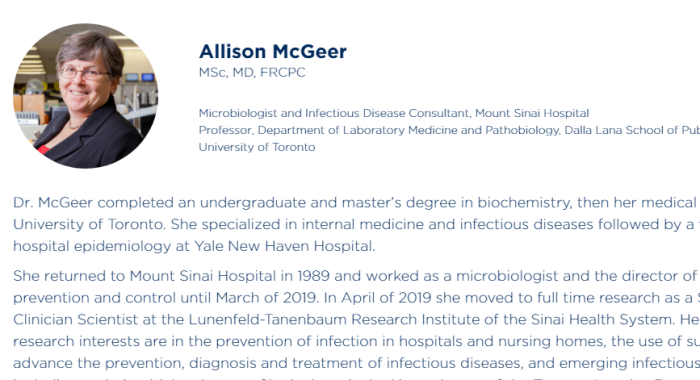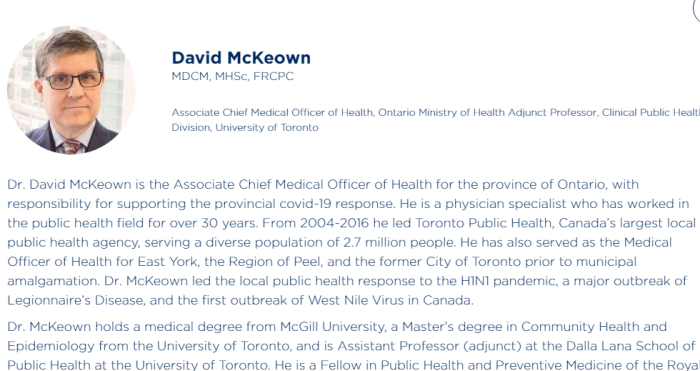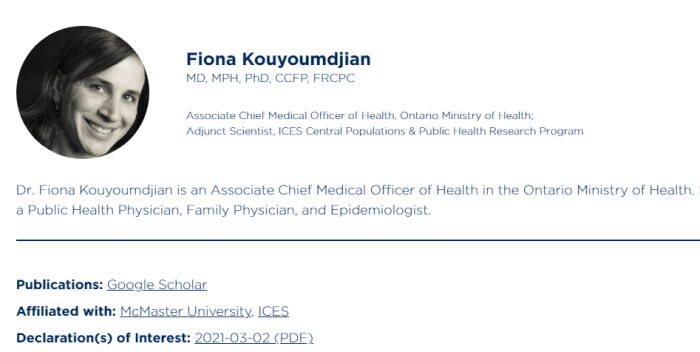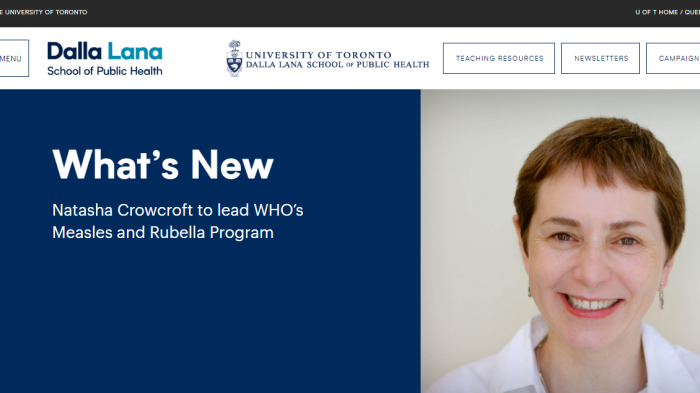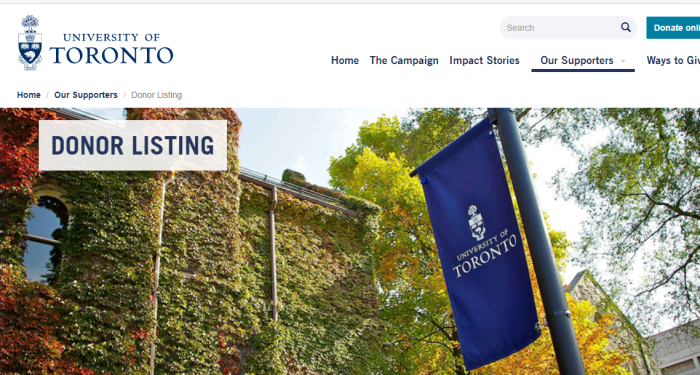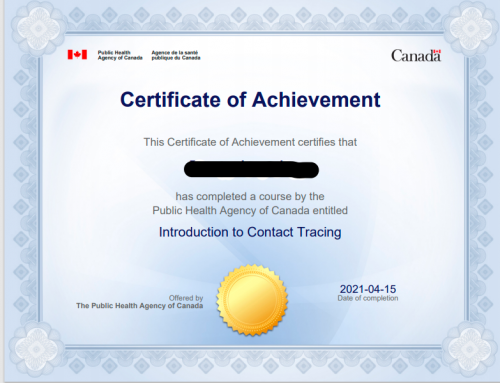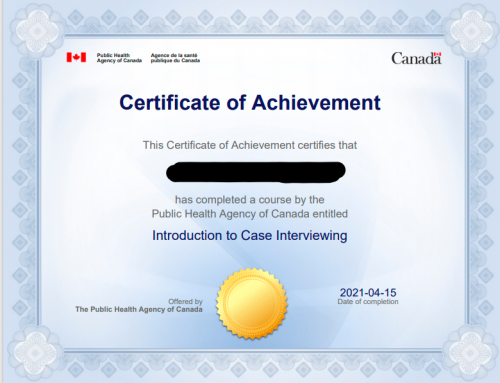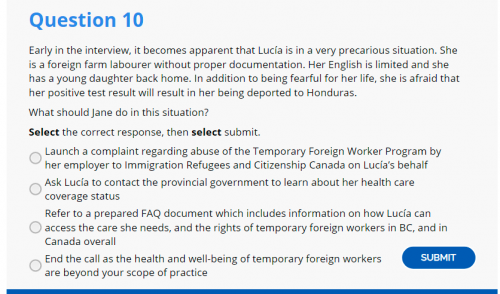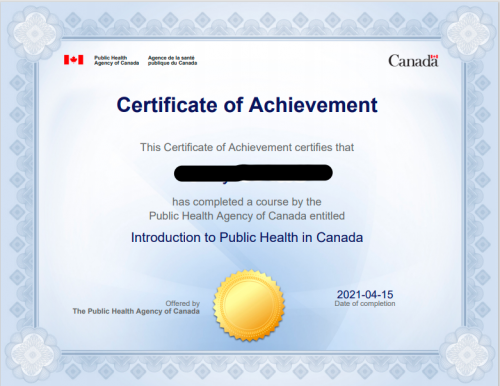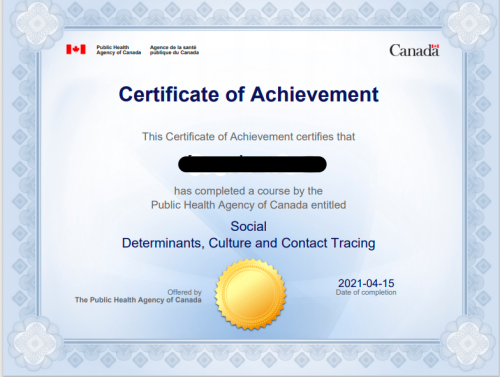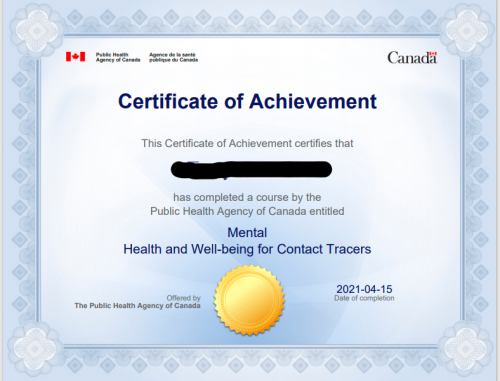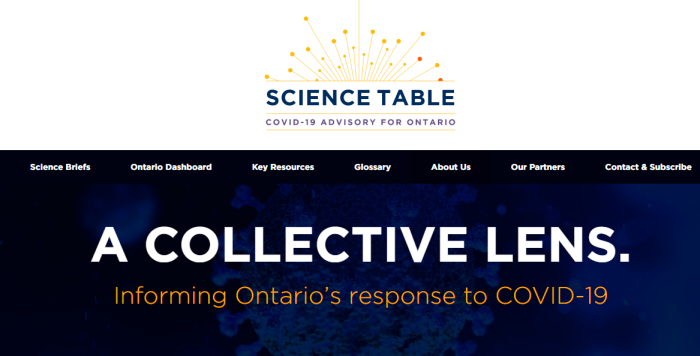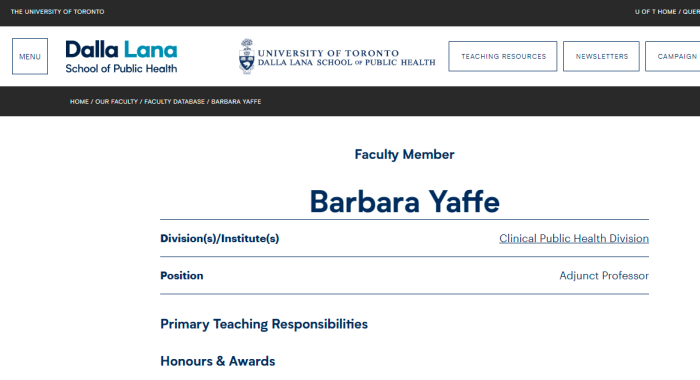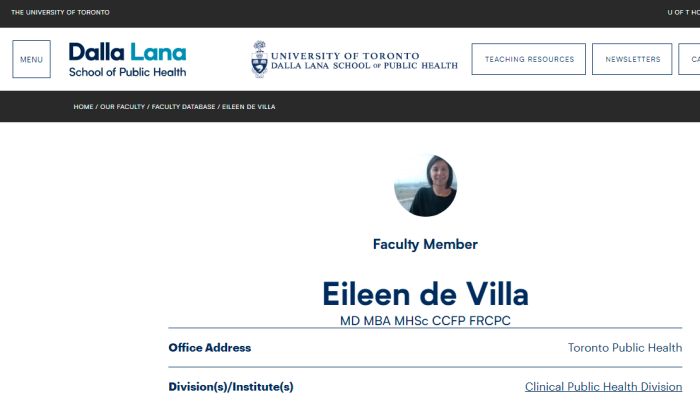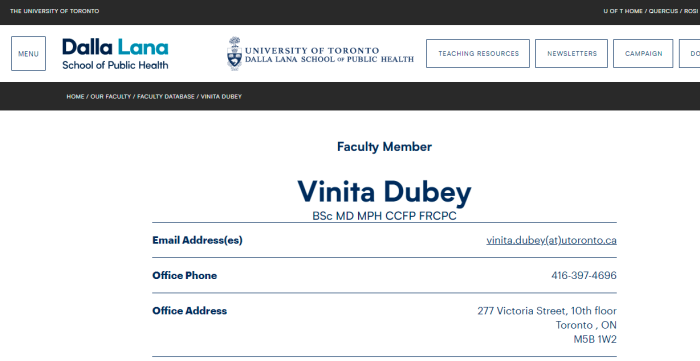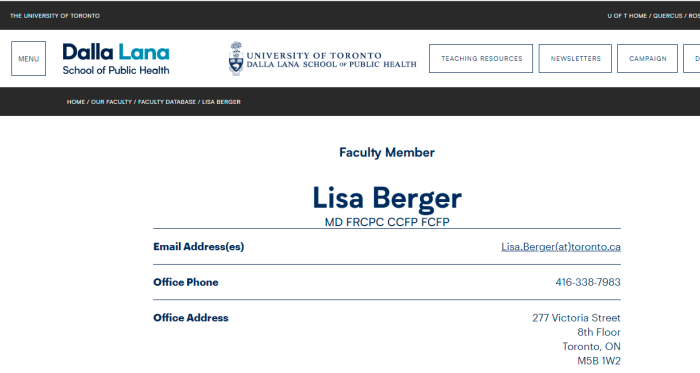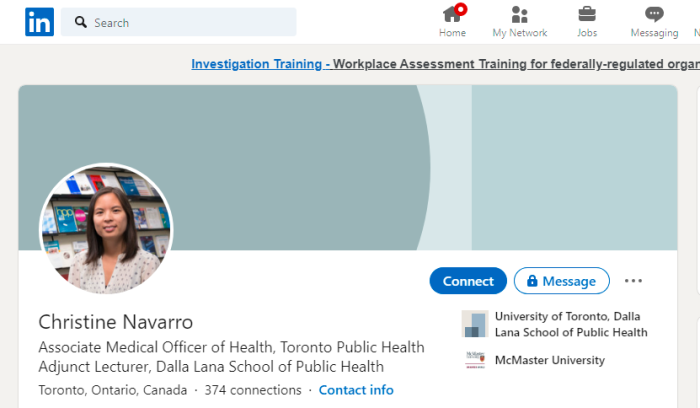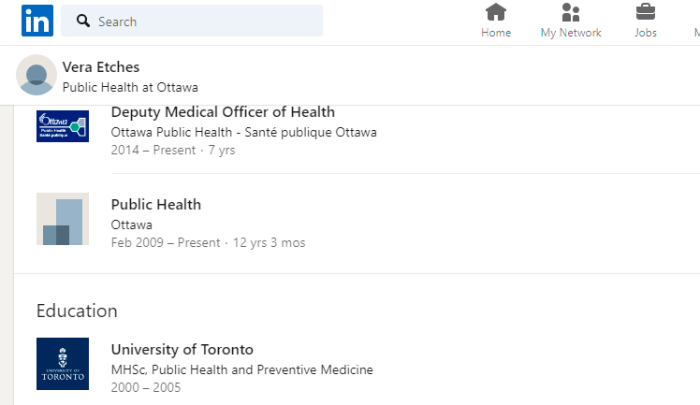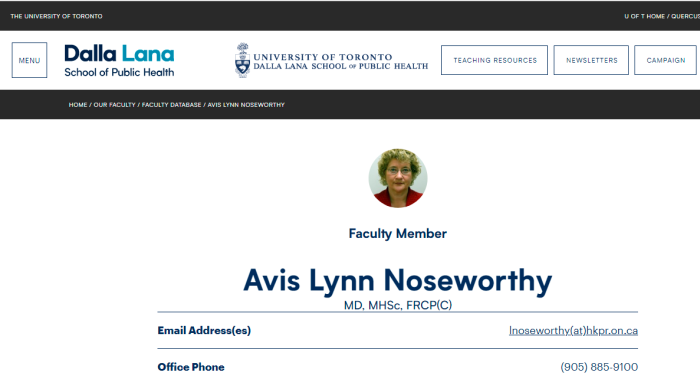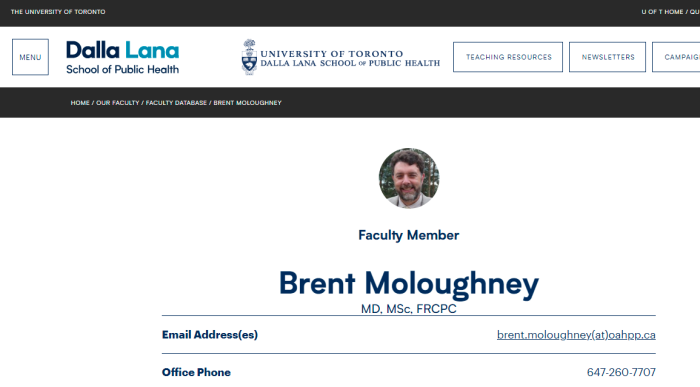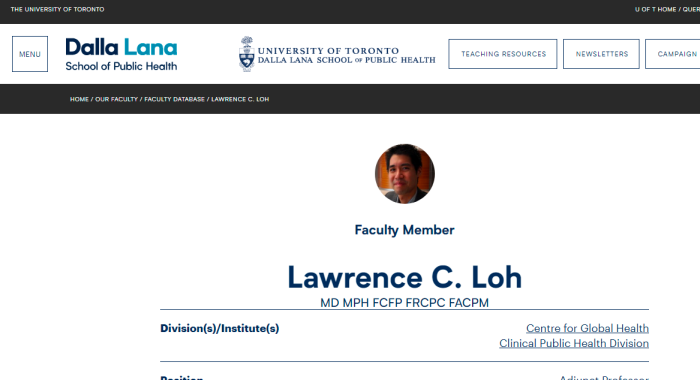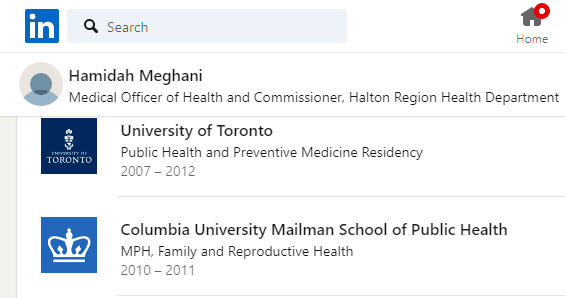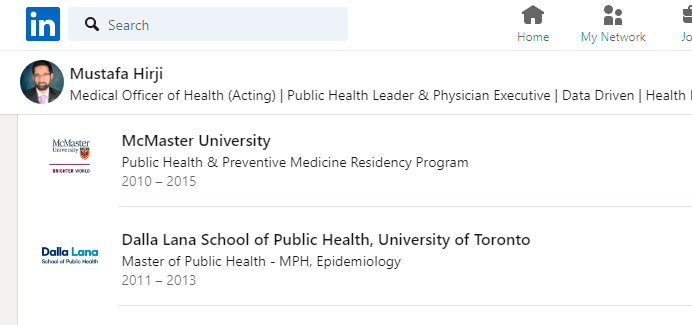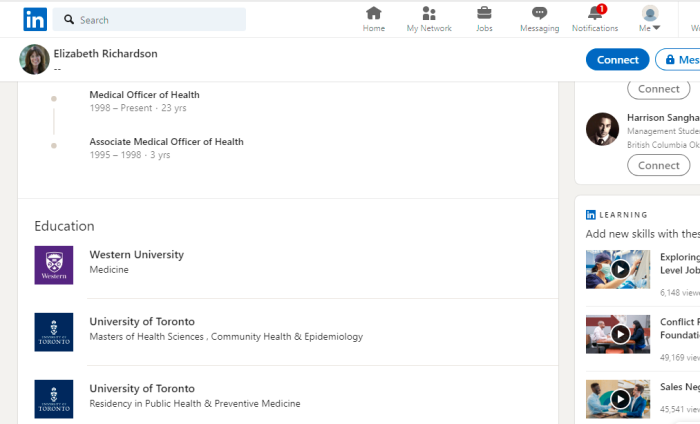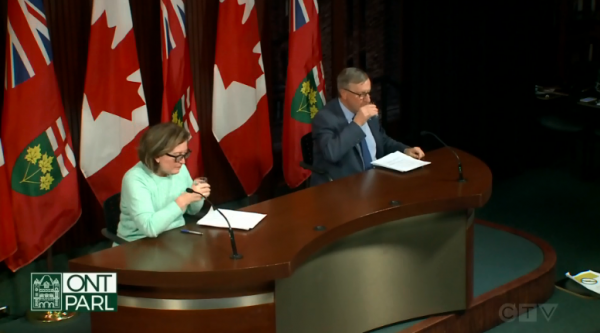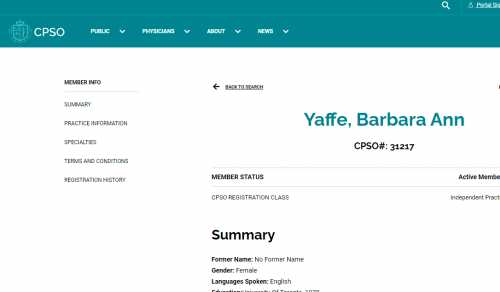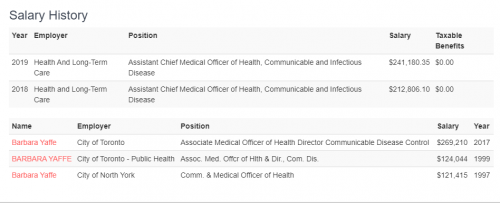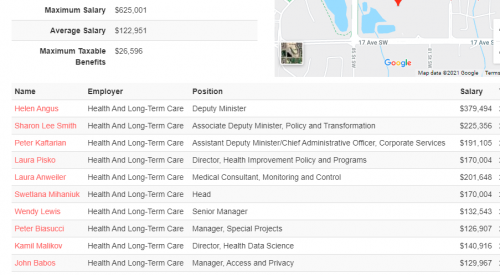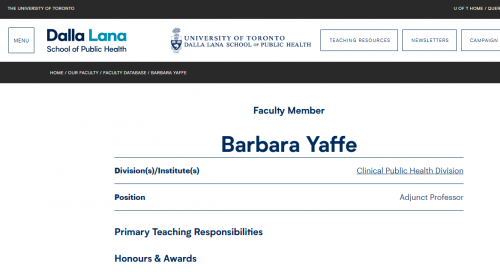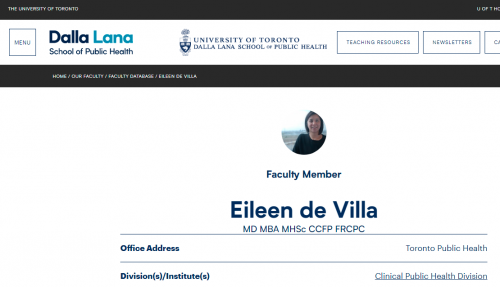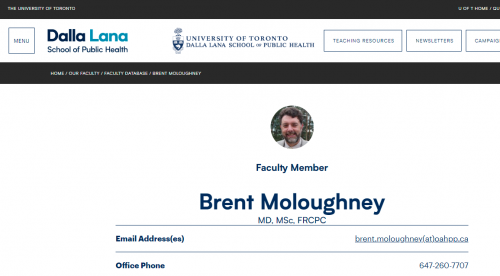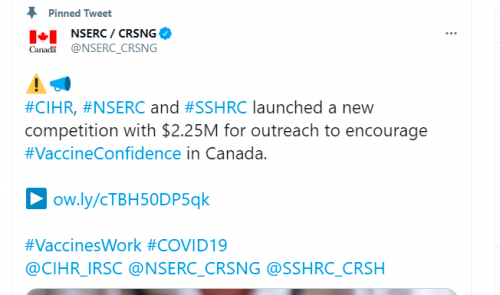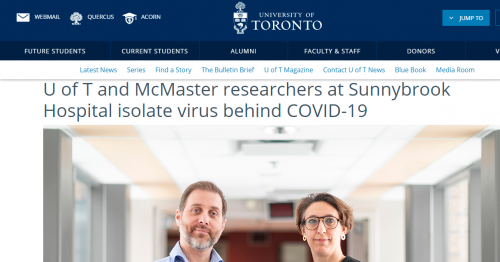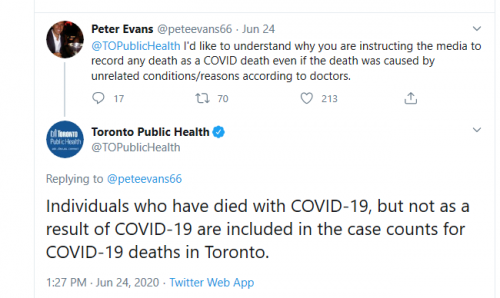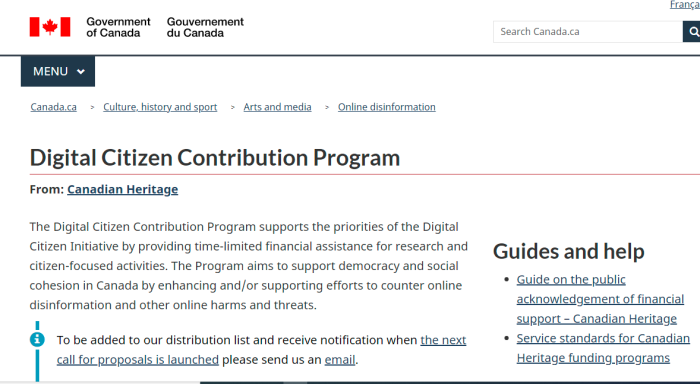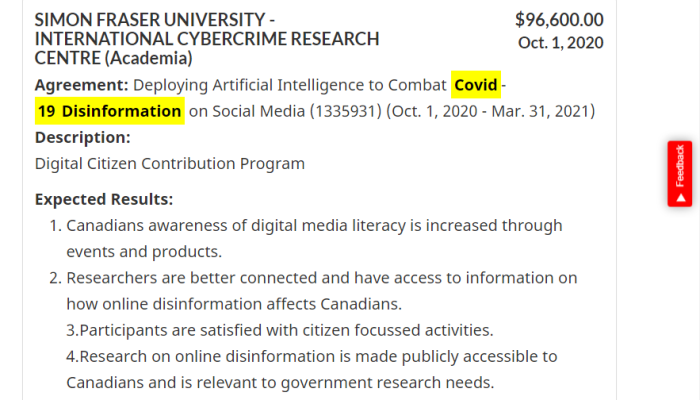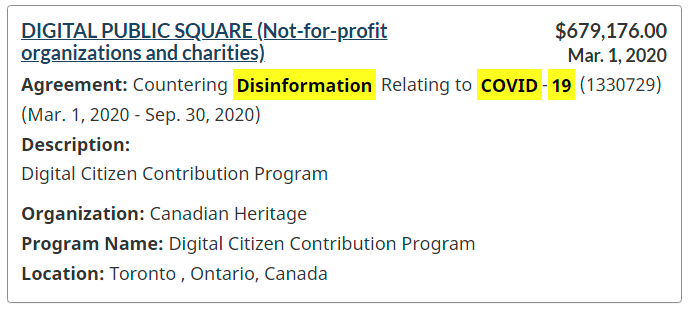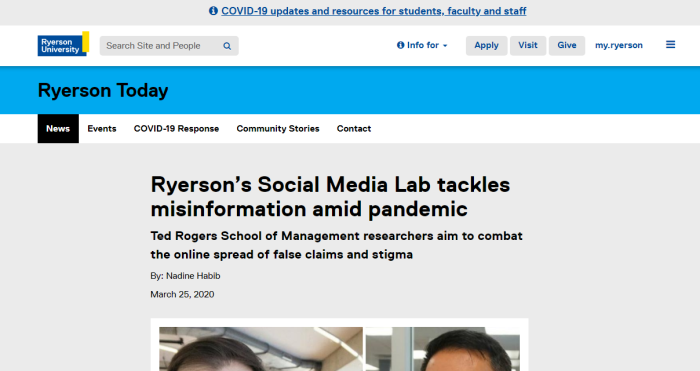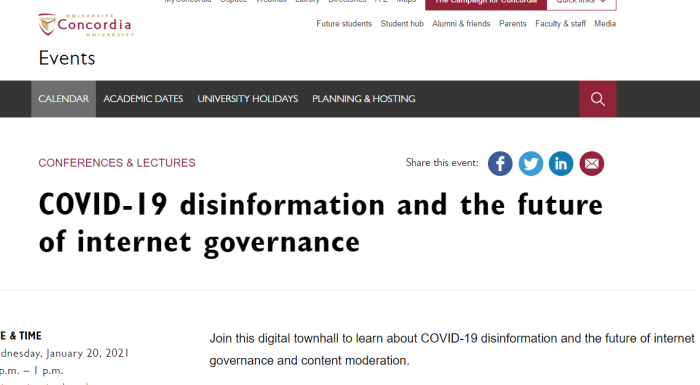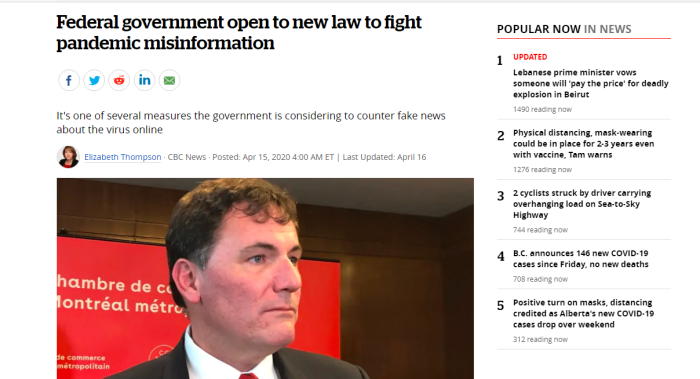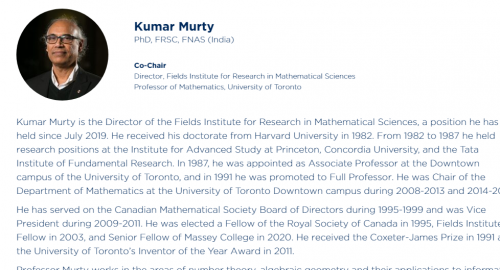
Vijaya Kumar Murty, works for the Ontario Science Table, conducting mathematical modelling to “guide” the resposes of politicians on taking away our rights. Now, this group appears to be well meaning academics, but there is a lot of information not in the public arena. And Murty is another example of this happening.
Some questions are worth asking.
The OST is already a questionable organization given: (a) rampant ties the the University of Toronto; (b) conflicts of interest with its partners and members; (c) the brainchild of PHAC works for them; (d) the former research chief of the Ontario UBI pilot project works for them; and (e) the groundwork for OST was laid out in 2019.
Ontario Deputy Medical Officer, Barbara Yaffe, is worth a long hard look. She has climbed the ranks and gained power, despite never practicing as a doctor. Another one is Michael Warner, who financially benefits from prolonged lockdowns. It’s also disturbing that NSERC/CIHR are actually paying people to act as vaccine salesmen, and cloak it as research.
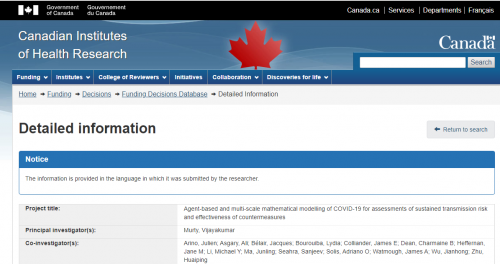
The Canadian Institutes for Health Research (CIHR) handed out $666,667 in 2020 to Murty and his associates to conduct modelling for CV cases and deaths. It was to last for 2 years. In 2021, he received a couple more grants of $100,000 each. One was to conduct modelling on the effectiveness of countermeasures. The other was modelling the risk to health care workers.
https://archive.is/ImPxE
https://archive.is/fIeqK
https://archive.is/FMLH5
The large February 2020 grant is explained as:
The Fields Institute for Research in Mathematical Sciences, in collaboration with the Pacific Institute of Mathematical Sciences and the Atlantic Association for Research in Mathematical Sciences, together with the Public Health Agency of Canada and international partners, is assembling a national COVID-19 Mathematical Modelling Rapid Response Task Force. Our goal is to mobilize a national network of infectious disease modellers to develop mathematical technologies to assess transmission risk of COVID-19, project outbreak trajectories, evaluate public health interventions for its prevention and control, and inform public health policy makers as well as multi-scale modelling to assist in the development of effective treatment strategies. Such a network functioned during SARS and was successful in providing real-time advice to public health officials. In the case of COVID-19, in addition to the mathematical modellers drawn from across Canada, we have the partnership of the Public Health Agency of Canada and its Coronavirus Modelling Group, Vaccine and Infectious Disease Organization at the University of Sasketchawan, the Advanced Disaster, Emergency and Rapid Response Simulation facility at York University and several research institutes in China including one at Xi’an Jiaotong University.
To be clear, computer modelling is not evidence of anything. They are predictions, and limited by both the knowledge and bias of the people involved. And as outlined earlier, the “independent” Ontario Science Table will be being both the modelling, and make the decisions what to do about it. Quite the conflict of interest.
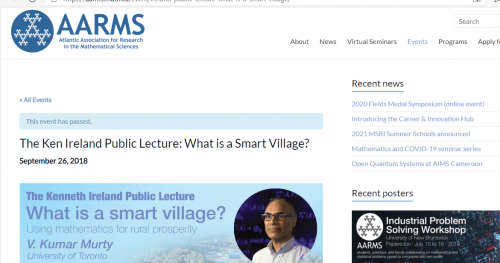
April 2018: the Fields Institute, part of the University of Toronto, hosted a seminar on “smart villages”. The idea is self explanatory, as it would involve bringing even small and remote areas into the digital sphere. Murty was one of the speakers.
September 2018: Murty gave a speech for the Atlantic Association for Research in the Mathematical Sciences, or AARMS.
May 2019: Murty was chosen to be the head of the Fields Institute. The timing is interesting, as that’s also when the Centre for Vaccine Preventable Diseases was launched by the University of Toronto.
The decision to appoint Professor Murty received unanimous approval of the Fields Institute Board of Directors. Professor Murty will lead the Institute’s continuing efforts to advance research and development of the mathematical sciences in Canada and abroad.
June 2019: The Fields Institute held a conference on the topic of “smart villages”. It was cohosted by the Canada-India Foundation, and Process Research ORTECH Inc. Murty gave a speech on innovation, inequality, and smart villages.
Quite the coincidence: the Fields Institute is pushing for smart villages, and a greater online connectedness. Murty is helping make that happen. However, Murty is also largely responsible for the alarmist computer modelling that is shutting down society, and forcing everything online.
Will PerfectCloudIO benefit from such a societal change?


It turns out that Murty is a Co-Founder and CTO of PerfectCloudIO. Although there are broken links on the Leadership section, his Wikipedia page is linked from his biography.
PerfectCloud is a Canadian cloud company developing innovative technologies to make the cloud safer. We are headquartered in Toronto, Ontario with offices in NY, USA and New Delhi, India. Our services are hosted with Firehost who have data centers located in London, Amsterdam, Singapore, and Dallas.
The website goes on to explain what Perfect Cloud is, and what they are selling to the public. Two of the products they offer are:
- SmartSignin: the most secure way to manage access to your cloud applications for SSO for your employees, customers or partners, across multiple devices. Includes a Single Sign-On solution, Federated Identity Management, Authorization & Authentication, and Access Control & Audit.
- SmartCryptor: encrypt your data and store it securely on desktop or cloud storage applications. Share your files or revoke access to any shared documents anytime, using any device. You have the full control over your critical data and who can access it.
In order for a company to be successful, it needs customers, and a growing base.
- First, by promoting the doomsday computer modelling as fact, he can convince the Ontario Government (and elsewhere) to impose more restrictions. That means more people are stuck at home, and more people will be looking at computer services.
- Second, by pushing the “Smart Villages” initiative, Murty is able to grow the market. In order to connect people the way he wants, they will need digital hookups, like the kinds of services that Perfect Cloud offers.

Far from being alone, Perfect Cloud partners with several organizations, all of whom stand to profit from the increased computerization of our society. This is mentioned on his OST disclosures. He is listed as an investor, although not active in the day to day operations.


Perfect Cloud also publishes the identities of some of its major clients. This suggests this isn’t just some start up, but a well established company.
While his association with the Fields Institute is listed, it is never made clear that advancing the Smart Villages initiative is a major goal of theirs. He’s calling for policies that will benefit him financially, even if they are against the best interests of society. Martial law in Ontario certainly is against the public interest, which is likely why this connection isn’t readily available. Not exactly transparent, is it?

